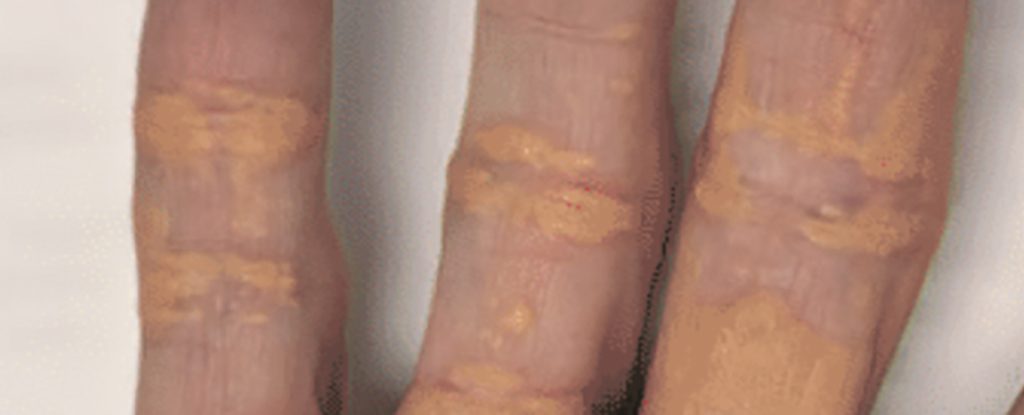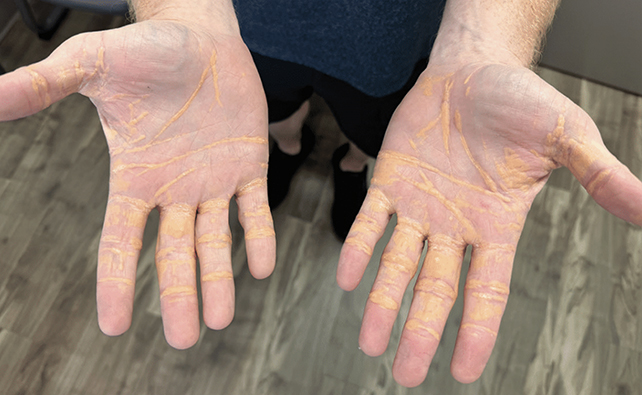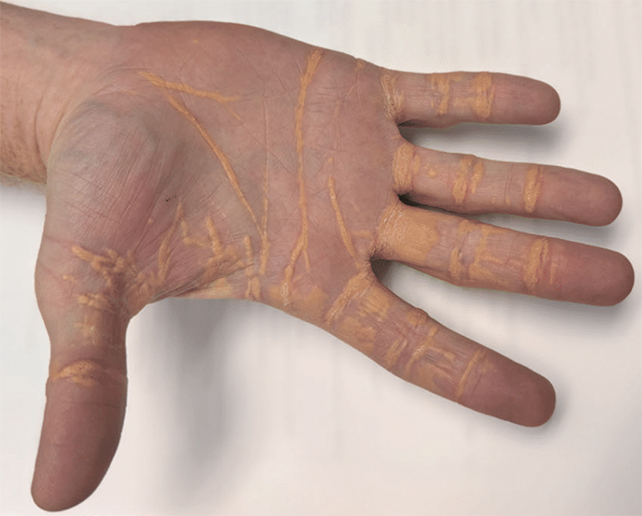
A man in Florida developed yellowish cholesterol deposits all over his body, attributed to an unhealthy diet rich in hamburgers, cheese, and butter, according to a recently published report.
While details remain limited, this individual, reportedly in his 40s, noticed “asymptomatic yellowish nodules on his palms, soles, and elbows” for three weeks before consulting a physician.
This followed nearly eight months of adhering to a carnivore diet, which comprises only meat, poultry, eggs, seafood, some dairy products, and water. Fruits, vegetables, grains, legumes, seeds, and nuts are completely excluded from this regimen.

Though the carnivore diet—a form of low-carbohydrate ketogenic diet—has surged in popularity, research indicates that it may deprive the body of crucial vitamins, nutrients, and fiber while increasing the risk of conditions like cancer.
The man reportedly consumed up to 4 kilograms (9 pounds) of fatty food daily, often enhancing his hamburgers with extra fat. His cholesterol levels soared to over 1,000 mg/dL, exceeding the recommended healthy range by more than five times.
These dietary habits and elevated cholesterol led to the appearance of yellow patches on his skin, as an overload of cholesterol filled his bloodstream. In some instances, the cholesterol buildup was so severe that it started to break through the skin.
After evaluation, the medical team determined it was a severe case of xanthelasma, which causes noticeable yellow cholesterol deposits beneath the skin. This condition typically manifests near the eyes but can occur on other body parts as well.

Prior studies have associated xanthelasma with various health conditions, such as diabetes and thyroid disorders. It is also closely related to hyperlipidemia or high cholesterol, as seen in this high-fat diet case.
Although these deposits are not painful, they can only be excised through specialized surgical procedures, even if the man’s diet and cholesterol levels normalize. Options include laser surgery or extreme cold liquid nitrogen treatments.
Beyond the visible symptoms, this condition serves as an indicator of deeper health issues: elevated cholesterol is linked to numerous serious health concerns, including heart disease, stroke, and kidney complications.
There is substantial evidence suggesting that high cholesterol can accelerate cancer growth and may also increase the risk of dementia, in addition to obstructing vital bodily functions.
It is hoped that the patient took the recommendations from medical professionals seriously and has modified his dietary habits, even though he previously reported experiencing weight loss, enhanced energy levels, and better mental clarity on the carnivore diet.
This case study has been featured in JAMA Cardiology.









